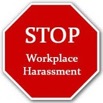Wal-Mart (Still) Pays High Price For Failing To Investigate Employee’s Complaint
Sunday, October 12, 2014 - Filed in: General Interest

Facts
Ms. Boucher was an Assistant Manager of a Wal-Mart retail location. After she refused to falsify a log book, the location's Manager (Mr. Pinnock) became abusive towards her. Mr. Pinnock continuously belittled, humiliated and demeaned Ms. Boucher, often in front of co-workers, in the hopes that she would eventually quit.
Ms. Boucher tried to obtain help from Wal-Mart by bringing a compliant about Mr. Pinnock's behaviour to management through the company's "Open Door Communication Policy." The policy permitted and encouraged employees to voice their workplace concerns to senior management in a confidential manner. In breach of the policy, Ms. Boucher's request for a meeting with senior management was leaked to Mr. Pinnock, who then threatened her with reprisal for reporting him and subjected her to an "increasing torrent of abuse." Despite substantial evidence of Mr. Pinnock's abuse, including first-hand accounts from co-workers who described Mr. Pinnock's actions towards Ms. Boucher as "ferocious" and "horrific," Wal-Mart concluded that Ms. Boucher's complaints were unsubstantiated and notified her that she would face discipline for making unsubstantiated complaints. Mr. Pinnock was neither disciplined nor even cautioned for his conduct .
Ms. Boucher quit after a final incident in which Mr. Pinnock forced her to count skids in front of co-workers to prove that she could count to ten.
Trial
Ms. Boucher brought an action against both Wal-Mart and Mr. Pinnock and the matter was tried before a judge and jury. The jury determined that Ms. Boucher had been constructively dismissed and awarded her damages equivalent to 20 weeks' salary, the notice period specified in her employment contract. The jury also awarded $1.45 million in aggravated and punitive damages:
- $1.2 million against Wal-Mart ($1 million in punitive damages and $200,000 in aggravated damages for the manner in which Ms. Boucher was dismissed)
- $250,000 against Mr. Pinnock ($150,000 in punitive damages and $100,000 for intentional infliction of mental suffering, awards for which Wal-Mart was vicariously liable as Pinnock's employer)
Court of Appeal
The Court of Appeal upheld the jury's findings of liability and, in doing so, condemned Wal-Mart's response (or lack thereof) to Ms. Boucher's workplace harassment and violence complaints as "reprehensible," noting at paragraph 84:
The evidence reasonably supports the jury's finding that Wal-Mart's own conduct was reprehensible. That evidence, which I reviewed earlier, includes Wal-Mart's refusal to take Boucher's complaints about Pinnock seriously, its dismissal of those complaints as unsubstantiated despite substantial evidence to the contrary, its unwillingness to discipline Pinnock or intervene to stop his continuing mistreatment of Boucher, its threatened reprisal against her, and its contravention of its workplace policies. Although Wal-Mart may not have deliberately sought Boucher's resignation, on the evidence led at trial that the jury undoubtedly accepted, Wal-Mart's actions and its inaction were reprehensible.
The Court of Appeal upheld all aspects of the jury's award except for the amount of punitive damages. The punitive damages against Mr. Pinnock were reduced from $150,000 to $10,000 and those against Wal-Mart from $1 million to $100,000. The Court felt that these reduced amounts, in light of the substantial awards for aggravated damages, was all that was "rationally needed" to punish Wal-Mart and Pinnock, and denounce and deter their conduct. While the reduction in punitive damages is significant, Wal-Mart will still pay a hefty price for its inaction in responding to Ms. Boucher's complaint: namely, $410,000 plus 20 weeks' salary.
Employer Takeaways
- Employers must adhere to their own workplace violence and harassment policies. As the Court of Appeal noted, it is not enough to simply pay "lip service" to such policies.
- Employers are vicariously liable for the actions of their employees and therefore it is important that employees, and in particular managers and supervisors, are fully trained with respect to the company's workplace violence and harassment policies.
- Employers must take all complaints of workplace harassment and violence seriously and an investigation will almost always be required. The key to ensuring that a workplace investigation is conducted properly is to ensure that it is organized, complete and fair. This includes adhering to any pre-determined policy, having impartial investigators, collecting adequate information and making a decision that is supported by the results of the investigation.
- Employers should not threaten reprisal or impose sanctions against employees who make complaints about harassment or violence in the workplace except for in clear cases of bad-faith complaints.
- Courts will not hesitate to punish "bad behaviour." Therefore, a proactive human resources and investigation strategy is key to prevent management overstepping the line.
Note: This is a reprint of an article by Meaghan J. McWhinnie of McCarthy Tetrault LLP.
